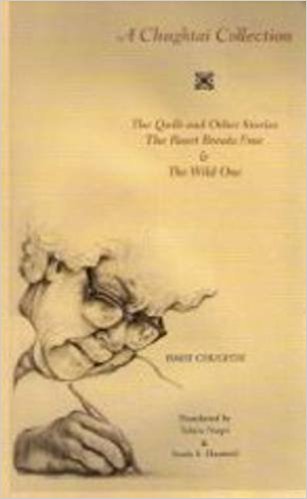The present volume is a collection of fifteen short stories and two novellas. Ismat Chughtais name should be familiar to anyone who has even a slight interest in Urdu literature and drama. She opened new avenues for women writers in Urdu fiction. According to Tahira Naqvi, Ismat was an unselfconscious feminist (who) was doing all the things that we imagine feminists or women who are truly liberated (would) do but she didnt think she was doing anything extraordinary. That was the way she was.1 This was before the word feminist was part of the vocabulary. Ismat Chughtai is considered one of the four pillars of modern Urdu fiction, the other three being Saadat Hassan Manto, Krishen Chander, and Rajinder Singh Bedi. Writing at a time when womens works were neither taken seriously, nor published, Chughtai had to keep her work hidden. Her first story, Lihaaf created a furore when it was published in a magazine in 1941 and after it came to be known that the writer was a woman.
Written in her inimitable style, the story dealt with the sexual desires of a woman. It amazed, shocked and horrified the people. Around this time Chughtai became a part of the Progressive Writers Movement. It drew writers like Faiz Ahmed Faiz, Sajjad Zaheer, Kaifi Azmi, and Rasheed Jehan. These people brought completely new set of values to Urdu literature in terms of their thinking and the way they wrote stories.

